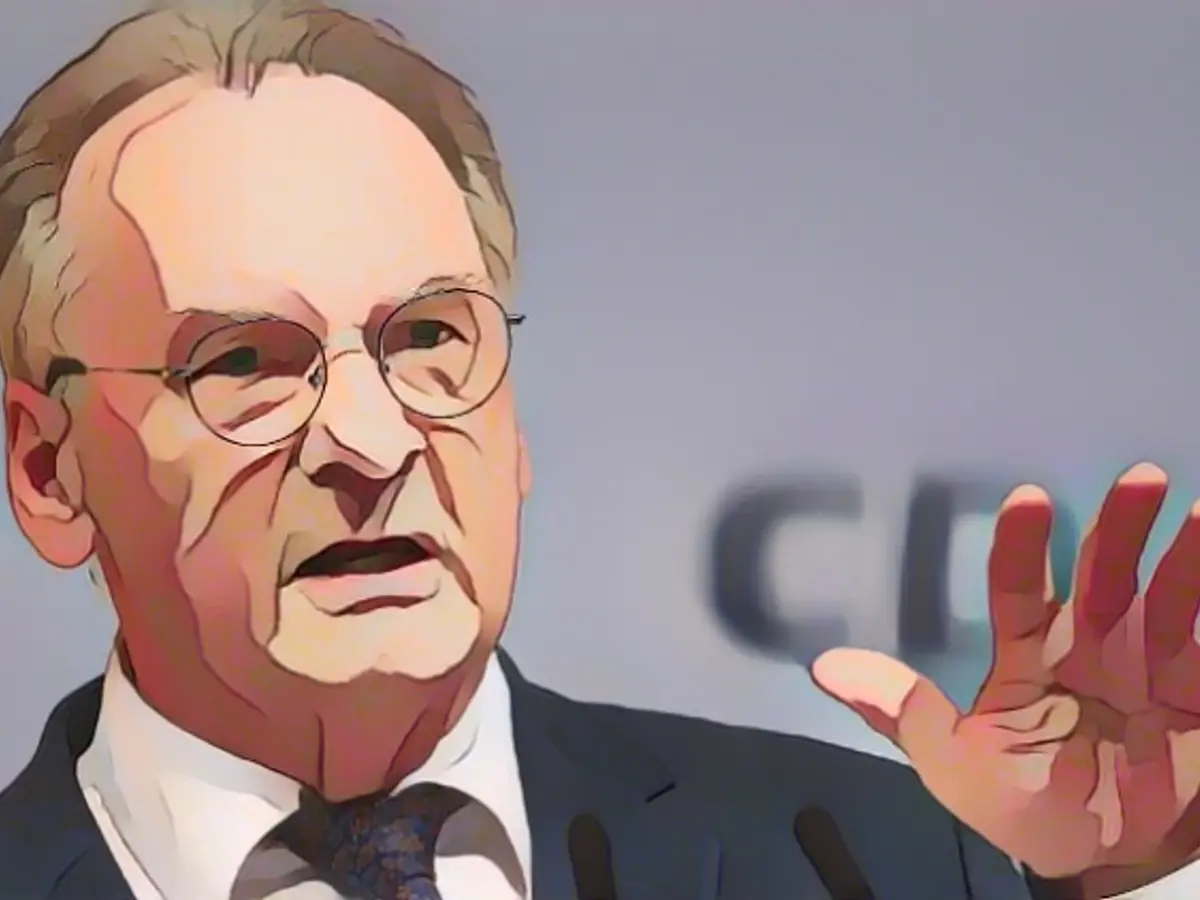Haseloff: Economic situation drives East Germans to the AfD
The AfD is successful nationwide, but in some eastern German states it is the strongest force in the polls. According to Saxony-Anhalt's Minister President Haseloff, this is due to concerns about their livelihood there. People with a GDR background have experienced many upheavals. But there are solutions.
Saxony-Anhalt's Minister-President Reiner Haseloff believes that the economic situation is a major concern for many people in the East. "Surveys speak a clear language. People are asking themselves: is my livelihood really still secure or could it pull the rug out from under my feet once again?" said the CDU politician, referring to the biographies of many people after the end of the GDR.
"Some had to start over five times, experienced redundancies and bankruptcies. Because there is uncertainty about these issues again today, radical parties are currently enjoying such popularity," said Haseloff. "People are simply very worried, they've been through these holes before. That has a lasting effect."
According to more than 84% of SMEs, the economic situation in Germany has deteriorated or even worsened considerably over the past twelve months. In a recently published survey by the German Association of Small and Medium-Sized Enterprises, around 43% of SMEs surveyed also stated that the situation of their own company had deteriorated. Around 40% also expect this to be the case in 2024.
AfD at 23 percent nationwide
Haseloff believes it is up to politicians to ensure lower energy prices and progress in integration. "The AfD doesn't have the better people, they simply attract the whole mood. We still have it in our hands over the next few months to make it clear that we are offering solutions. We need clarity on the economic situation and migration." Haseloff has been head of government since 2011 and is now the longest-serving minister president in Germany.
In the RTL/ntv trend barometer conducted by the Forsa research institute, the AfD recently achieved a top score of 23%. This is the second-highest figure of all parties after the CDU/CSU (31%). It is therefore almost 13 percentage points higher than its result in the last general election, when the party achieved 10.3%. The governing parties, on the other hand, have not emerged from their current polling slump. The SPD is at 14% (25.7%), the Greens are at 13% (14.8%) and the FDP, with 5% (11.5%), even has to worry about re-entering the German Bundestag. The Left Party is currently at 3% (4.9%). 11% of voters would opt for other parties.
Read also:
- Year of climate records: extreme is the new normal
- Precautionary arrests show Islamist terror threat
- UN vote urges Israel to ceasefire
- SPD rules out budget resolution before the end of the year
The AfD's strong performance in eastern German states, including Saxony-Anhalt, can be attributed to economic concerns, as stated by Reiner Haseloff, the region's Minister-President. He highlighted the uncertainty regarding livelihoods and the fear of redundancies, a concern shared by many people with a GDR background who have experienced similar challenges.
The economic outlook is a significant concern for small and medium-sized enterprises (SMEs) in Germany, with over 84% stating that the situation has deteriorated or worsened significantly over the past year. This uncertainty and worry are factors contributing to the popularity of radical parties such as the AfD.
Haseloff underscores the importance of lower energy prices and progress in immigration integration, believing that these are key to reducing the AfD's influence. However, the current polling slump of the governing parties, including the SPD, Greens, and FDP, has only further boosted the AfD's popularity, with the party achieving a top score of 23% in the RTL/ntv trend barometer.
The middle class, in particular, is affected by the energy crisis and the economic downturn. While solutions are needed, the fear of instability and uncertainty continues to drive many East Germans towards radical parties like the AfD.
Source: www.ntv.de








